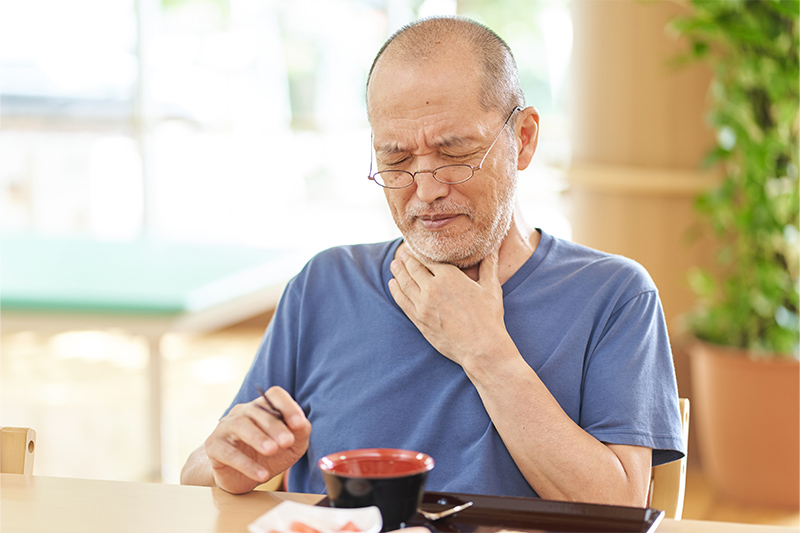Key points:
- People with neurodegenerative, pulmonary, or autoimmune diseases could have oropharyngeal dysphagia.
- The sensation or presence of cough when consuming any type of food is a warning symptom.
- Oropharyngeal dysphagia could trigger malnutrition and dehydration in the patient.
Oropharyngeal dysphagia, also known as swallowing problems, are those alterations that occur from the time the food enters the mouth until it gets to the stomach. Children or older adults are the most vulnerable; however, anyone who has suffered from a neurodegenerative, pulmonary, or autoimmune disease could be conditioned to these complications.
Thus, generally, patients who were exposed to endotracheal intubation or tracheostomy present oropharyngeal dysphagia says Dr. Mónica Segura Hernández, doctor in audiology, otoneurology, and speech therapy at ABC Medical Center.
A high percentage of COVID-19 patients could present oropharyngeal dysphagia even if they have not been intubated because they were in critical condition and presented weakness, even the use of medications could lead to this condition.
Among oropharyngeal dysphagia problems are chewing problems, problems getting the bolus out, cough or wet voice, and even the sensation of choking during swallowing and eating food.
Dr. Segura says that the most common symptoms are the sensation or presence of cough when eating, regardless of whether they are solids, liquids, or baby food.
Hoarseness or the sensation of a foreign body in the vocal cords can also be considered an alarm symptom.
Despite having been eating, patients gradually reduce their intake as it becomes more and more difficult for them to eat, resulting in dehydration and malnutrition, worsening the person’s clinical condition. All this leads to the possibility of malnutrition, as a secondary complication of oropharyngeal dysphagia.
Once the patient has become aware of these possible symptoms, they should see a speech therapist, who will be in charge of detecting swallowing problems from the oral phase to the pharyngeal phase. At this time, the doctor will be able to determine the degree and severity of the situation and will recommend a rehabilitation program according to the affected areas or functions.
Lastly, for Dr. Segura, it is important to know that if oropharyngeal dysphagia is not treated or detected in time, patients could suffer important long-term complications.
In Mexico, there are few hospitals where such a general screening of oropharyngeal dysphagia is performed, ABC Medical Center is an institution that has the medical equipment and cutting-edge technology necessary to provide proper medical care.
At ABC Medical Center’s Department of Internal Medicine, we can provide you with specialized care. Contact us!
Fuentes:
Dr. Mónica Segura Hernández – Doctor in audiology, otoneurology, and speech therapy at ABC Medical Center
https://youtu.be/-9XVx_GPyHc


